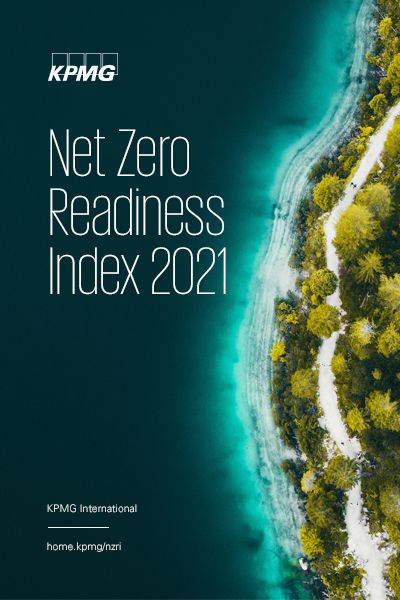Hungary has a Net Zero target in place and its financial sector is working to stimulate the flow of capital to decarbonization efforts. Much of its electricity is generated by nuclear power and it is developing solar capacity, energy efficiency and use of electric vehicles.
Political will
Hungary's government has accelerated work on carbon reduction over the last 2 years, according to István Szabó, Senior Manager, KPMG in Hungary. It is one of five countries that receives the highest score on contribution to global Net Zero, partly as a result of its June 2020 climate protection law that includes a 2050 Net Zero target.1
For example, the government is trying to decarbonize transport through tax benefits and cash support for electric vehicles, and encouraging intermodal freight junctions for cities, so containers can be transported mostly by rail with road used for the last few kilometers. Regarding industry, a number of multinational manufacturers have large Hungarian factories which are run to high environmental standards, and the country's EU membership means all have to meet its standards. Domestically focused companies can potentially benefit from available EU funds and green lending products to make a smooth transition in the following years, says Szabó.

Financial sector support
Having started a green program in 2019, in March 2021, the country's central bank, Magyar Nemzeti Bank (MNB), published its first green report in which it said that the financial sector should do more to integrate environmental and sustainability considerations with regulation now allowing use of the EU's green taxonomy.2 It has also issued green guidelines for banks, among the first regulators in the EU to do so. These include rules that require banks to nominate responsible persons for managing sustainability risks or amending ESG factors at the credit approval process. It followed this in July with measures to promote green mortgage lending.3 MNB plans to introduce a discounted interest rate program for buying or building energy efficient residential properties. Szabó says the central bank's stance is likely to encourage progress, adding: “If the financial sector is supporting the green transition, the real economy will move in that direction.”

Real economy
However, there are challenges to tackle in the real economy. Around 40 percent of Hungary's electricity is generated by the Paks nuclear power plant, whose first unit started generation in 1982, with four now in operation.4 A 2014 intergovernmental agreement with Russia agreed construction of two new units which would start generation in the early 2030s, which if it goes ahead, would support Hungary in moving towards Net Zero.
Gas is currently the main alternative source for electricity production, although solar power generation capacity is increasing. Given the dominance of nuclear, which typically generates steady levels of power, and daily fluctuations from solar, grid management organization Mavir has seen issues in balancing supply and demand. As part of a new energy efficiency obligation scheme launched in 2021 targeting electricity, natural gas and transport fuel, the energy regulator has introduced penalties for electricity, gas and fuel providers who are not able to generate sufficient energy efficiency investments.
On buildings, Hungary is ranked 10th due to factors including the use of heat pumps, mandatory building energy certification and incentives to retrofit, some of which are EU measures. Szabó says that new developments tend to be built to high levels of energy efficiency but retrofitting existing ones can be a significant challenge.
1 'Parliament passes climate protection law', Hungary Today, 3 June 2020. https://hungarytoday.hu/parlt-passes-climate-protection-law/
2 'The MNB published its Green Finance Report for the first time', Magyar Nemzeti Bank, 3 March 2021. https://www.mnb.hu/en/pressroom/press-releases/press-releases-2021/the-mnb-published-its-green-finance-report-for-the-first-time
3 Krisztina Than, 'Hungary central bank announces steps to boost green mortgage lending', Reuters, 6 July 2021. https://www.reuters.com/business/sustainable-business/hungary-central-bank-announces-steps-boost-green-mortgage-lending-2021-07-06/
4 'About us', MVM Paks Nuclear Power Plant, accessed July 2021. https://atomeromu.mvm.hu/Rolunk


